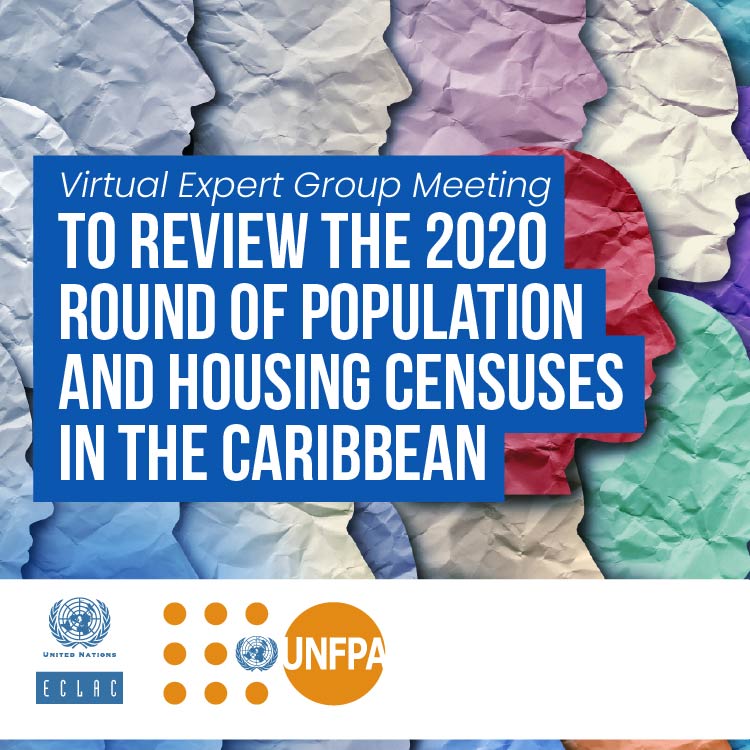Virtual Expert Group Meeting to Review the 2020 round of population and Housing Censuses in the Caribbean
Work area(s)
Teaser
A meeting of experts to discuss a selected area of statistics for sustainable development in the Caribbean Census.
Event information

Data
3 Dez 2025, 11:00 - 13:00Event type
Participation
Background
The 2020 round of population and housing censuses in the Caribbean faced numerous challenges. With almost all countries originally planning to carry out their censuses in 2020, 2021 and 2022, the census programme was impacted at its outset by the COVID-19 pandemic which led most statistical offices to delay census fieldwork. At the time of writing, most countries have now undertaken census fieldwork, but many are still in the process of checking, editing and analysing the data and preparing census outputs.
In addition to the COVID 19 related delays, many countries experienced significant challenges in carrying out their census fieldwork. The two most significant problems were the unwillingness of many people to participate in the census, a longstanding problem which, in some countries, seemed to breach a critical level in this round; and difficulties associated with the retention of census enumerators which often led to repeated cycles of recruitment, thereby delaying enumeration. Other challenges which emerged to varying degrees included problems related to the impact of elections, difficulties accessing gated communities, overly long questionnaires, and tablets overheating in the sun. Where these problems occur together, they will tend to compound each other, driving response/enumeration rates even lower.
While activities associated with the 2020 round of Caribbean censuses are still very much ongoing, the year 2025 formally marks the start of the 2030 round (the United Nations defines the 2020 census round as being constituted by the censuses undertaken during the period 2015 to 2024, with the 2030 round being those carried out from 2025 to 2034 and so on). Despite the continuation of 2020 census round activities, this year is the optimal year to undertake a review of the 2020 round in the Caribbean. The challenges which many countries experienced in their census fieldwork are still relatively fresh in the memory and given the fundamental implications that these issues have for census design and planning for the 2030 round, these issues need to be addressed now. The delays experienced in this round mean that the intercensal period is more compressed than it would normally be and an evaluation of the 2020 round is needed to inform plans and preparations for the next round of censuses which, it is anticipated, would be carried out in 2030, 2031 and 2032. Waiting for all countries to complete their ongoing census activities before undertaking a more fully comprehensive review is not realistic.
This study will therefore review the 2020 round censuses, up to whatever stage of implementation they have reached, focusing on those issues and challenges which have emerged with the most salience, and which need to be addressed with the greatest urgency, in preparation for the next round of censuses.
Subregional headquarter(s) and office(s)
Attachment(s)
Related link(s)
Organizing institution
ECLAC Subregional Headquarters for the Caribbean
- http://www.cepal.org/en/headquarters-and-offices/eclac-caribbean
- (868)224-8000